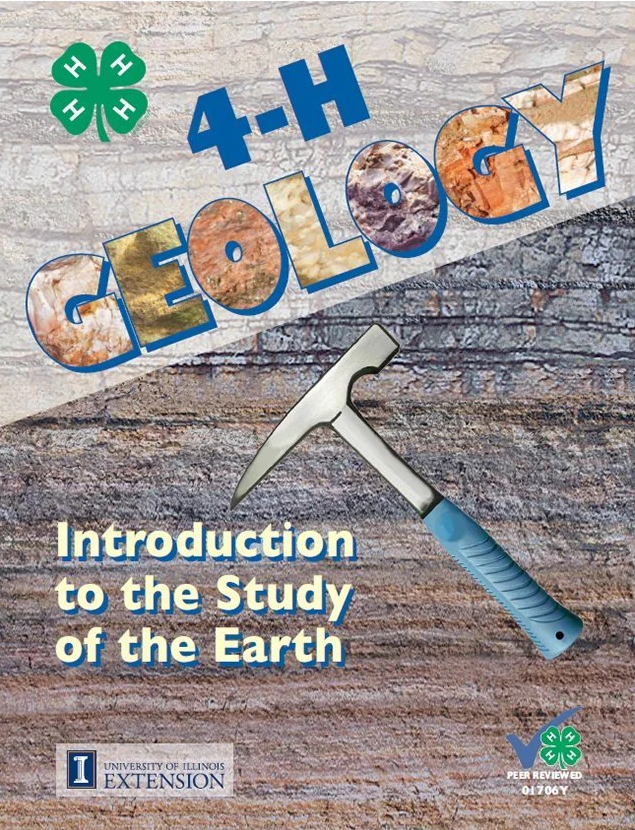Home » 4-H Opportunities » Projects » Environmental/Outdoor Education » Geology
Geology

What is it all about?
Have you ever found a rock or fossil at a park and wanted to know what it was? Discover the types of minerals, rocks, and fossils found in Wisconsin. Dig into the Geology project!
Grow in Your Project
Beginner
- Learn how the earth was formed and its three main parts
- Learn the difference between a rock and a fossil
- Collect, clean, identify and label rocks, minerals and fossils found in Kansas
- Learn the types and impacts of erosion.
Intermediate
- Use different tests to identify minerals by hardness and color
- Learn how to identify fossils
- Learn to display and evaluate geology exhibits
- Learn how mountains are formed
- Discover the impact of glaciers
Advanced
- Learn to measure specific gravity
- Read and use a topographic map
- Measure formation thickness
- Test to determine chemical properties of minerals
- Locate sites on a plat map
- How to prepare for geology
Member Resources *

4-H Geology:
Introduction to the Study of the Earth
1 level (grades 3-12)
Free Downloads
Take Your Project Further!
- Take a field trip with a purpose. Look for hills, canyons, cliffs, valleys, lakes, rocks, soils, or other natural resources
- Visit a lapidary (rock) shop in your area
- Read an article, story, or a chapter from a book about rocks, minerals, or geology
- Visit the University of Wyoming Geological Museum on campus in Madison
- Look for fossils around your house or visit southwest Wisconsin which has a rich history in fossil collection including Devil’s Lake State Park
- Do a home search to find the minerals and metals that are used in your home
- Find out more about the Wisconsin State gemstone and where it is found
- Make your own rock tumbler
Applying Project Skills to Life
Enhance Your Communication Skills
- Give a talk to your club about different types of birthstones and where they are found
- Give a presentation about a field trip you took in Wisconsin to study geology
Get Involved in Citizenship and Service
- Create jewelry with rock you find and donate them to a local charity or sell them and donate the money to a local charity
- Take your rock and mineral collection to a local elementary school and share your collection with them
Learn about Leadership
- Host a rock and mineral identification contest for your club members
- Lead a craft with your club members to make rock creatures or rock art
- Invite club members to take a geology field trip, create a scavenger hunt so member know what to look for related to geology
Showing What You’ve Learned
- Create an exhibit to show the geology specimens you have collected. Be sure to label the specimens with the correct names
- Explain the rock cycle using words and pictures
- Display rocks from three major types of rocks: igneous, sedimentary, and metamorphic
- Create a poster showing how rocks change
- Create a rock creature or rock art
- Make your own rock crystals for display
- Make a poster or display about rock textures
- Create a display about erosion or the effects of erosion in Wisconsin
- Make a display about what different types of minerals are used for
Adapted with permission from Wyoming State 4-H, Project Information Sheet, Geology. Retrieved from: https://www.uwyo.edu/4-h/projects/natural-resource-education/geology.html.
Header image courtesy of Willfried Wende at Pexels.
*Resources available at your local Extension office or shop4-H.org.
This page is optimized for printing




